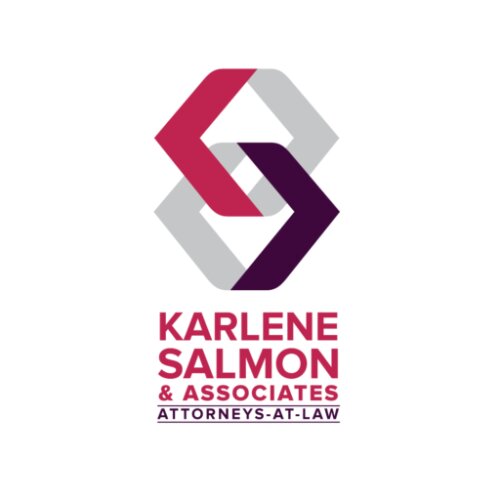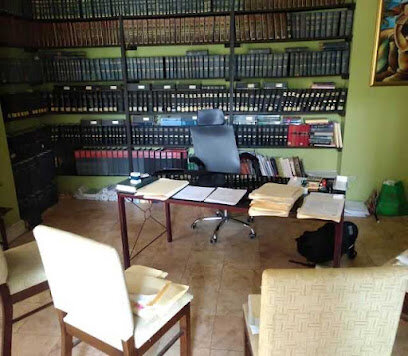Best Restructuring & Insolvency Lawyers in Jamaica
Share your needs with us, get contacted by law firms.
Free. Takes 2 min.
Or refine your search by selecting a city:
List of the best lawyers in Jamaica
About Restructuring & Insolvency Law in Jamaica
Restructuring and insolvency law in Jamaica provides a legal framework for businesses and individuals facing financial distress. These laws are designed to address situations where debts have become overwhelming and creditors’ claims cannot all be satisfied in full. The aim is to balance the interests of debtors and creditors, provide mechanisms for the orderly distribution of assets, and, where possible, facilitate the reorganization and survival of viable businesses. Jamaican law sets out distinct procedures for both corporate and personal insolvency, ensuring fairness and transparency throughout the process.
Why You May Need a Lawyer
There are several situations where engaging a restructuring and insolvency lawyer in Jamaica is crucial. Common scenarios include:
- Your business is facing cash flow problems and cannot pay its debts when due.
- You have received statutory demands, winding-up petitions, or court notices from creditors.
- You are considering voluntary liquidation or want to explore options for restructuring your company's debts.
- You are a creditor and want to understand your rights or enforce those rights when a debtor becomes insolvent.
- You are an individual being threatened with bankruptcy action or seeking debt relief options.
- You wish to negotiate settlements with creditors or enter into formal arrangements like schemes of arrangement or receivership.
Navigating these complex legal situations without professional advice can lead to unnecessary losses, missed opportunities for business survival, or personal liability. An experienced lawyer will explain your legal position, protect your rights, and guide you through the most appropriate legal or commercial solutions.
Local Laws Overview
Jamaica’s main statutes governing restructuring and insolvency include the Insolvency Act, 2014, the Companies Act, and ancillary regulations. Key aspects include:
- Insolvency Act, 2014 - This modern legislation applies to both personal and corporate insolvency. It details processes like bankruptcy, liquidation, and arrangements with creditors.
- Bankruptcy for Individuals - Individuals unable to pay their debts can be declared bankrupt, which involves distribution of assets among creditors and, eventually, discharge from remaining debts.
- Corporate Insolvency - Companies may enter into liquidation (voluntary or involuntary) or propose a scheme of arrangement to restructure debts under court supervision.
- Receivership - Lenders with secured interests may appoint a receiver to take control of and realize a debtor’s assets.
- Creditors’ Rights - Creditors have statutory rights to initiate insolvency proceedings, file claims, and participate in creditors’ meetings, but are subject to the priorities established by law.
- Asset Distribution - There is an established order of priority for distributing assets, ensuring preferential payments to certain types of creditors such as employees and secured creditors.
- Protection from Legal Proceedings - Statutory moratoriums may halt legal actions against the debtor during restructuring or insolvency proceedings, providing breathing space to reorganize or settle affairs.
It is essential to know your rights and responsibilities under these laws, as failure to comply can result in personal liability for directors or further legal consequences for individuals and companies.
Frequently Asked Questions
What is insolvency?
Insolvency occurs when a person, company, or other entity is unable to pay debts as they become due. In legal terms, this means that your liabilities exceed your assets or you are unable to meet financial obligations when they fall due.
What is bankruptcy?
Bankruptcy is a legal process involving a court declaration that an individual is unable to pay their debts. It typically leads to the liquidation of assets and discharge of debts, subject to court approval.
How can a business restructure its debts in Jamaica?
A business may restructure by negotiating informally with creditors, entering into a formal scheme of arrangement under court supervision, or through other statutory processes such as administration or voluntary liquidation.
What is liquidation?
Liquidation is the winding up of a company’s affairs, selling its assets, and distributing the proceeds to creditors in accordance with the law. It marks the end of the company’s existence.
Who can start insolvency proceedings?
Insolvency proceedings can be initiated by the debtor (individual or company) voluntarily, or by creditors seeking to recover unpaid debts through the courts.
What is a receiver, and when is one appointed?
A receiver is a person appointed, usually by a secured creditor, to take control of and sell specific assets or an entire business to repay debts. Receivership is commonly used when a company defaults on a secured loan.
What protection do debtors have once insolvency proceedings begin?
When insolvency proceedings are underway, statutory moratoriums may prevent creditors from taking legal action or seizing assets without court approval, giving debtors time to organize affairs or implement a restructuring plan.
Can directors of insolvent companies be held personally liable?
Yes, company directors can be held personally liable for debts in cases of wrongful or fraudulent trading, or if they fail to fulfill their statutory duties during insolvency proceedings.
What is the priority of payment to creditors?
The law sets an order for paying creditors from available assets. Secured creditors and preferential creditors such as employees are generally paid first, followed by unsecured creditors and, lastly, shareholders.
How long does bankruptcy last in Jamaica?
Bankruptcy typically lasts until the court orders a discharge, which may be after asset distribution and a specified period, depending on the case’s circumstances and compliance with legal requirements.
Additional Resources
If you need further information or assistance on restructuring and insolvency in Jamaica, consider these resources:
- Office of the Supervisor of Insolvency - The government authority overseeing insolvency and bankruptcy matters.
- Companies Office of Jamaica - Responsible for company filings, including liquidation processes and receiverships.
- Supreme Court of Jamaica - Handles major insolvency cases and approves schemes of arrangement.
- Jamaica Bar Association - Can help connect you with experienced insolvency lawyers.
- Financial institutions offering debtor support and advisory services.
Next Steps
If you believe you need legal help regarding restructuring or insolvency:
- Gather all relevant financial documents, such as statements of assets and liabilities, loan agreements, and any legal or court notices.
- Contact a qualified Jamaican lawyer specializing in restructuring and insolvency. Prepare a clear summary of your situation to aid the initial consultation.
- Discuss the available options with your lawyer, including informal negotiations, formal court proceedings, or alternative dispute resolutions.
- Follow your lawyer’s advice closely and act promptly, as timing can affect eligibility for certain legal protections or remedies.
- Stay informed by referring to governmental bodies and professional advisers who can offer ongoing support during the process.
Taking timely, informed action is crucial for the best outcome in any restructuring or insolvency matter in Jamaica.
Lawzana helps you find the best lawyers and law firms in Jamaica through a curated and pre-screened list of qualified legal professionals. Our platform offers rankings and detailed profiles of attorneys and law firms, allowing you to compare based on practice areas, including Restructuring & Insolvency, experience, and client feedback.
Each profile includes a description of the firm's areas of practice, client reviews, team members and partners, year of establishment, spoken languages, office locations, contact information, social media presence, and any published articles or resources. Most firms on our platform speak English and are experienced in both local and international legal matters.
Get a quote from top-rated law firms in Jamaica — quickly, securely, and without unnecessary hassle.
Disclaimer:
The information provided on this page is for general informational purposes only and does not constitute legal advice. While we strive to ensure the accuracy and relevance of the content, legal information may change over time, and interpretations of the law can vary. You should always consult with a qualified legal professional for advice specific to your situation.
We disclaim all liability for actions taken or not taken based on the content of this page. If you believe any information is incorrect or outdated, please contact us, and we will review and update it where appropriate.
Browse restructuring & insolvency law firms by city in Jamaica
Refine your search by selecting a city.
















